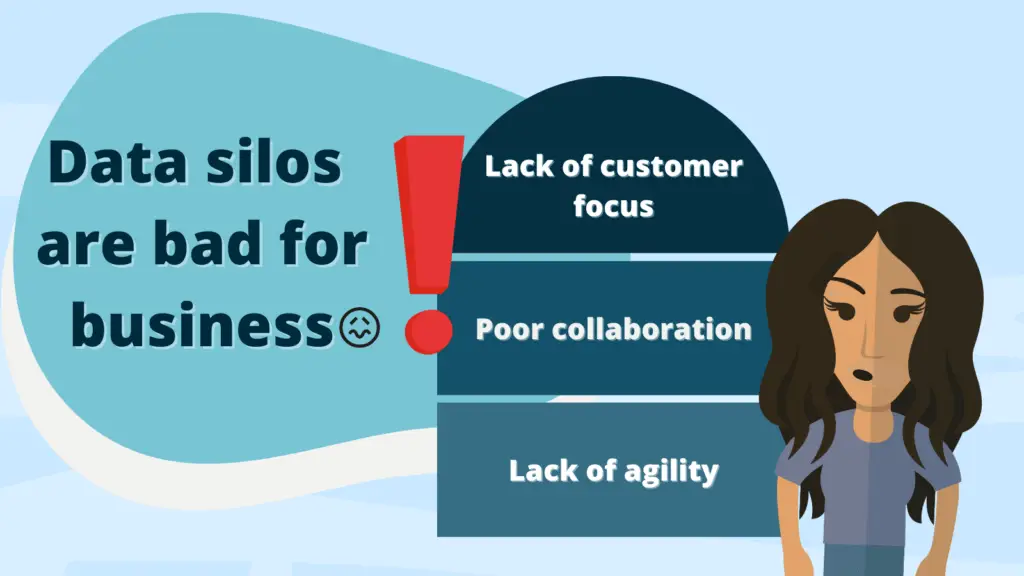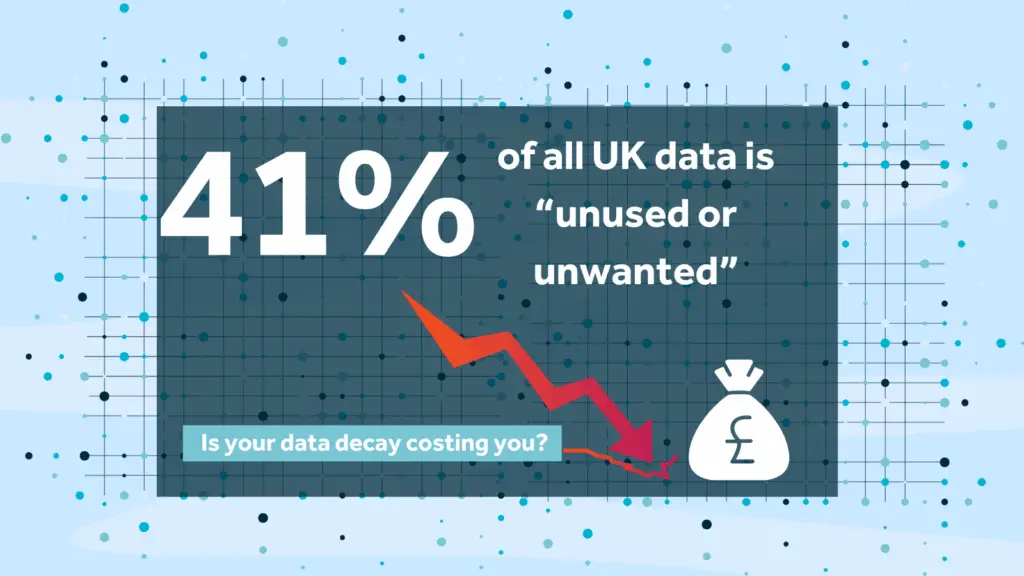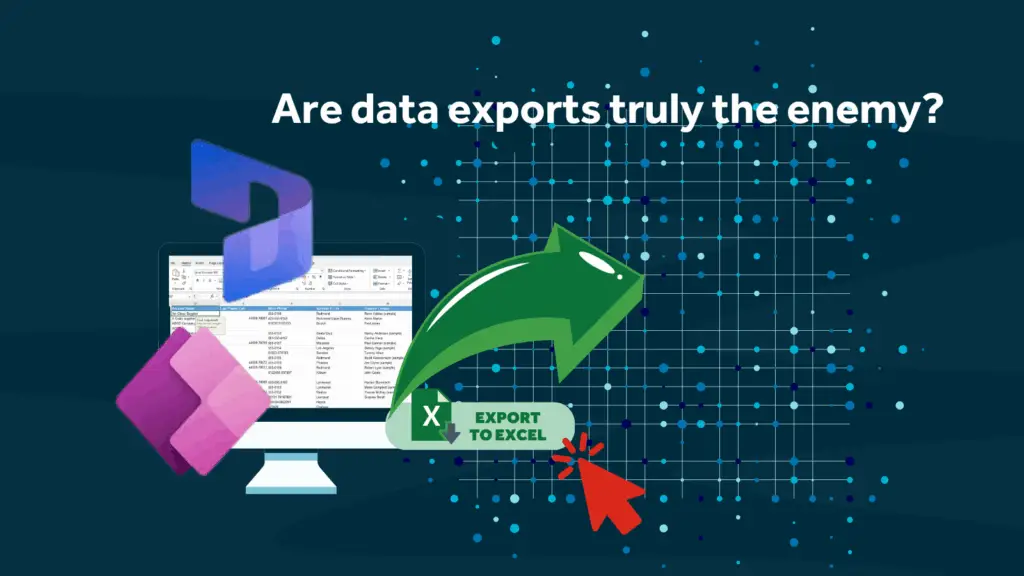Break free of the data silos and realise your growth potential.
In an organisation, there are multiple limbs or departments; for optimal performance, each individual department or function must know what the other is doing. They must work in coordination to successfully achieve motion and performance. And in this way, an organisation, regardless of scale or industry, is much the same as the human body.
Within the body, there’s an incredibly complicated level of cognitive awareness at play when coordinating body movements, which many of us take for granted. For most able-bodied people, our bodies move seemingly with little thought.
However, when the right hand doesn’t know what the left hand is doing, it can make coordination incredibly difficult and mean even the simplest of human tasks, such as picking up an item with two hands, are difficult to perform. And this is the same harmful effect data silos have on an organisation, as they make it difficult for businesses or charities to achieve optimal performance.
What are data silos, and why are they bad for business?
A data silo is a set of data within one area of an organisation that is not easily accessible by other groups in the same organisation. It’s effectively sitting in a vacuum and the data is walled-off from other departments and individuals.
An article from Entrepreneur shares that, on average, a company has more than 2,000 disconnected silos of information. The same report also shares that 47% of marketers struggle to gain insights from data, and they blame this on silos. Yet, the problem and its impact lie far beyond the marketing function.
Data silos have much to answer for and are responsible for fragmented data management, which can cause more harm than you realise.
When each of your functional teams carries out work without the greater context and appreciation of the other functions in the organisation, it creates a recipe for disaster. It can hinder growth and success in several ways:
Lack of collaboration
Teamwork makes the dream work, right?
If all your departmental teams work on their own agenda and are all isolated in their functions, imperative and potentially transformative data will not see the light of day. The reality is that valuable data can be sat in an Excel spreadsheet or Word document on an individual’s desktop, gathering dust until it expires. What a waste.
This lack of information flow stops cross-functional collaboration, hampering the cadence of activities and programs.
Lack of agility
In the fast-paced, unpredictable business environment that we exist in today, the game is about knowing how to make sense of information as it comes in and responding to it quickly. If you’re an organisation that lacks data visibility, you will struggle to pivot, missing opportunities and run into problems that could have otherwise been avoided. Whilst better-equipped, more agile competitors with intelligent data management sail on by.
Lack of productivity and focus
Data silos are guaranteed to leave your organisation less productive as employees are more likely to waste time on less significant activities and administrative tasks. Departments may even waste time and resources duplicating efforts or end up with misaligned goals and objectives.
This lack of joined-up thinking is due to departments being too inwards focused, as we have explained earlier.
Lack of customer focus
In a customer-centric time, a lack of data prevents the organisation from getting close enough to the customer due to a lack of customer insights. Without a solid basis for providing innovative personalised solutions, customers aren’t served well as they could be.
And this even goes beyond better understanding their needs and pain points. In today’s digital age, data must be leveraged to ensure you deliver the best customer experience across the whole buyer journey by interacting with them in the most convenient way for them and being available when they need them. How does a company know how and when the customer prefers to interact with them without data intelligence?
Data is the key to this omnichannel always-on approach.
A digital-first world
Today, a digital-first mindset is essential for growth-focused organisations.
And if you happen to be at the beginning of your digital journey, then its not necessarily a bad thing, as you have an incredible opportunity to radically transform your operations organisation wide, by accelerating operational performance, productivity and customer-centricity through digitisation and centralising your data.
But be warned, if your organisation continues to resist the digital-first mindset, you will eventually be left behind.
Eradicating data silos from your organisation
The good news is that no matter how fragmented and siloed your organisation is, there are several ways to address it.
Centralised data management
An increasing number of organisations now recognise the need to use a centralised database that allows you to integrate data seamlessly. For instance, dynamics 365 offers seamless integration with other microsoft apps like office, power apps, power bi and microsoft teams. This instantly helps organisations ramp up productivity and improve collaboration.
Going a step further, utilising business intelligence (bi) it’s possible to bring data from across the organisation and beyond the commercial function together to gain a top-down view of operations and performance and allow for data-driven decision-making to happen.
A single source of truth
Creating a single source of truth with your data prevents various issues from raising their ugly heads. Dynamics 365 effectively removes all independent siloes in your company because the data flows freely for everyone to see, use, and draw insights from.
With very advanced tools at your disposal, it also allows you to revolutionise your own organisational culture. You can be confident that you are making strategic decisions based on current and accurate data, whether looking at the macro picture or focusing on departmental performance.
In our article “Why a single source of truth matters for your data“, we delve into this subject in more detail, offering further advice on how it can help drive efficiency, improve collaboration and improve customer service.
Defining a CRM strategy
The most successful organisations define their data management strategy, and creating your own CRM strategy or making improvements to an existing one is an essential part of the puzzle, as it helps you align your commercial activities in sales and marketing to the customer’s current needs. It prevents stagnation and ensures you’re capturing, managing and leveraging your day optimally.
We offer advice on defining your CRM strategy in this article: “How important is a CRM strategy in 2023?“.
Democratising your data
Another sure way to avoid data siloes is to democratise your data. One of the most annoying setbacks in innovation is when you find out too late that you acted on incomplete information. The best decisions will only arise from carefully studying the complete picture.
Making a singular source of data available to those that need it requires accurate dissemination. For example, enabling your sales team to gain sight of pre-sales communication via web chat will better prepare BDMs to better prepare and align their introductions and pitches to the customer’s pain points.
Summary
In conclusion, data silos are the inhibitor of growth and success. They result in misalignment among functional teams, which results in poor outcomes that deliver below par customer experience. By shifting to a digital-first mindset and adopting a single source of truth, you can better picture the actual reality and all its aches and pains to create timely and purposeful action for the benefit of employees and customers.
About Rocket CRM
Rocket CRM is a Microsoft Dynamics 365 and a platinum Click accredited partner, helping small to medium-sized businesses and charities harness the power of scalable CRM technology. Our mission is to make powerful CRM software simple with custom-built, user-focused solutions. And with our podcast RocketPod, our aim is to help businesses get the most from their CRM software and leverage their data.




